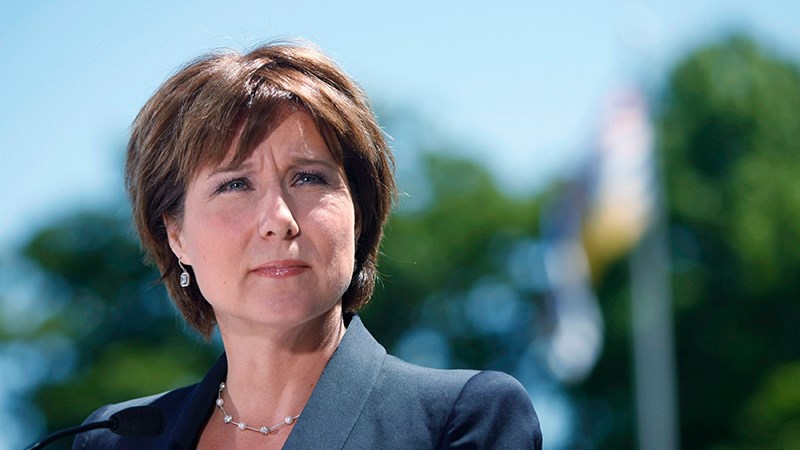Premier Christy Clark stripped self-regulation from the B.C. real estate industry a day after the release of a damning report from an Independent Advisory Group (IAG) that found the Real Estate Council of BC “does not effectively deter misconduct and unethical behavior” by real estate agents.
“After reading the report, our conclusion is that the privilege of self-regulation in the real estate industry must end,” Clark told a Vancouver press conference June 28.
Clark said the government would establish a dedicated superintendent of real estate, a new position, that will take over the Council’s regulatory duties.
“That will include transferring all authority for regulation, for penalties and rule-making away from the Real Estate Council and put it directly in the hand of the superintendent,” Clark said.
Clark said the government also accepts all 28 recommendations from the IAG, which was formed four months ago after reports of shadowing dealing in real estate, primarily in the white-hot Vancouver market, began to surface.
The IAG, chaired by Carolyn Rogers, Superintendant of Real Estate, had stopped short of calling for the usurping the Council’s regulatory role. The report, however, found that “the Real Estate Council does not consistently make use of the principles and rules that already exist, to effectively deter misconduct and unethical behaviours that impact on the reputation and confidence in the industry.”
The Council reacts solely on complaints, but should be more proactive in rooting out misconduct, the IAG recommended.
In 2014-2105, the Council received 436 separate complaints, up from 413 in the previous 12-month period, but down from 538 in 2012-2013. In about 20 per cent of complaints, the agent admitted misconduct, but of the remaining 1,100 complaints only seven resulted in disciplinary hearings.
“We have seen an unprecedented increased in complaints in this fiscal year,” said Maureen Coleman, professional standards advisor with the Council.
Coleman said most of the estimated 900 complaints received this year relate to conflicts of interest, where an agent or agents work to enrich themselves rather than their clients, and the vast majority of complaints came from the Metro Vancouver housing market. There are now 23,012 real estate licensees in B.C., up from 21,066 two years ago. About 12,800 licensees are members of the Real Estate Board of Greater Vancouver.
The IAG report also recommended maximum fines of up to $500,000 for misconduct by real estate companies, up from $20,000, and to a maximum of $250,000 for personal real estate agents, up from $10,000, in its 60-page report.
Clark said all of the IAG’s recommendations will be enacted, including the increased fines.
The IAG’s recommendations also include closer scrutiny of new real estate license applicants, and a call for all offers received on a real estate transaction be filed and retained for potential review by regulators. This, Rogers, explained, was due to suspicion that some real estate agents fabricated multiple bids in an effort to drive a sales price higher.
The IAG also calls for the Council to amend its rules to prohibit a licensee from acquiring a financial interest in their own listing.
"The real estate sector has had 10 years to get it right on self regulation and they haven't," Clark said.
“It is primarily important that we protect consumers," she said. "But the role of the real estate council and regulation is also to protect the vast majority of realtors who are honest, hard working people from having their reputations tarnished by a few shady operators."
The government will need to enact the necessary legislation before the regulatory powers are transferred from the Council to a superintendent of real estate, who has yet to be named, according to Stephen Smart, the premier’s press secretary.



